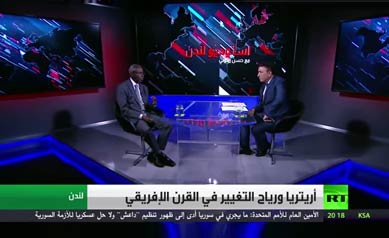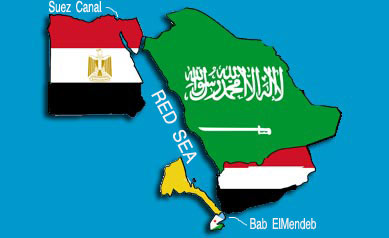UN Monitoring Group Recommends “Gold-for-Food” In Eritrea

On July 13, 2013, the Monitoring Group on Somalia and Eritrea (SEMG), which is mandated by the UN to observe and report on sanctions violations by Somalia and Eritrea, submitted its annual report to the Security Council. Even though the 500-page report on Somalia was released, a shorter 80-page report on Eritrea, recommending a “gold for food” scheme, was blocked from publication because of objections from Russia, pending further consultation.
Responding to a reporter’s question as to why the report was not released, the US head of Mission to the UN, Ambassador De Laurentis, said: “Well, there are two reports – the Somalia report and the Eritrea report. The Somalia report was released, and we remain deeply troubled by some of the Monitoring Group’s findings, and we encourage the Eritrean Government to play a productive role in the region. With respect to the other, as it remains with the Committee, it’s still a confidential document, and we’ll continue to discuss the release of it. But beyond that I’m really not able to make any further comment about it.”
The report on Eritrea, leaked to awate.com’s Gedab News by a UN diplomat, provided evidence that shows Eritrea’s continued involvement in destabilizing Somalia by threatening its international community-supported fragile government through financial support of a network of political agents and warlords with links to al-Shabab. For the last three years, the Eritrean government has been denying such links and refuses to cooperate with the UN monitoring group.
The panel expressed its concerns about the “opaque management of hundreds of millions of dollars of revenues obtained from mining production.” According to Nevsun’s financial statement, Eritrea was paid 148 and 317 million USD, in 2011 and 2012, respectively, from taxes, royalties and return on equity.
The panel could not determine how these payments were made and was unable to obtain transaction records of bank accounts from Nevsun or Eritrea. Because of the opacity of the transactions and the fungible nature of the hard currency, the panel proposed an application of due diligence measures to ensure that the proceeds will not be used in any activity that potentially violates the sanction.
Below are the three options and the panel’s recommendation.
1. Voluntary disclosures and earmarking
2. Joint Supervision
3. Mandatory disclosure
Option 1: Voluntary Disclosure and Earmarking. This would require the government of Eritrea’s voluntary enrollment in organizations like the Extractive Industries Transparency Initiative (EITI), requiring the mining companies and the Government of Eritrea to publish revenues and payments.
Option 2: Joint Supervision: Under this option, mining companies would be required to make payments to an escrow account administered jointly by the Government of Eritrea and a designated international body. The designated body could be appointed by the Security Council, or, in the alternative, the SC could delegate the task to the World Bank or a regional bank. This would be similar to the model used for Liberia, the Governance and Economic Management Assistance Program (GEMAP.)
Option 3: Mandatory Disclosure: Under this option, the Government of Eritrea would be compelled to disclose all payments related to mining revenue, making transfers of money easier to detect by the Monitoring Group.
Of the three options, the Monitoring Group is recommending Option 2 because Option 1 and Option 3 have built-in problems. Option 1 could only work if there was a vibrant and active civil society demanding external audits in Eritrea. Similarly, Option 3 is not practical: even if the Monitoring Group is able to follow the transfer of payments, it would face too many legal obstacles from overseas banks and money transfer agencies to conduct any meaningful monitoring.
Thus, the Monitoring Group is recommending Option 2 (Joint Supervision) as the only viable alternative as long as it is mandated to monitor sanctions on Eritrea and Somalia.
Eritrea Likely Candidate for HIPC
Two years of border war with Ethiopia, followed by thirteen years of a no-war no-peace environment, has resulted in a huge public debt for Eritrea, a figure that the Eritrean government does not disclose.
However, twenty years after gaining independence, when it was debt free, Eritrea along with Somalia and Sudan, is being considered for entry into Heavily Indebted Poor Countries (HIPC) debt services program by the IMF and World Bank. The IMF/World Bank estimates Eritrea’s debt to be 114 % of its GDP or USD 3.5 Billion, the 6ths highest in the world in terms percentage of debt to GDP. [see update below.] Loss of financial support from Libya’s Gadhafi has left the regime cash-strapped and unable to import fuel.
Power outage in Asmara has become more frequent and longer in duration. With the exception of several blocks in downtown Asmara, which experiences interment outage of few hours, the entire city has been without power for the last three weeks.
The UNSC is scheduled to take action on the recommendation in its July 24 meeting. Our diplomatic sources inform us that there are not enough votes at the UNSC to adopt any of the recommendations at this time, but there will be a strong warning against the mining companies and especially Nevsun whose predatory practice led Human Rights Watch to issue an extensive report entitled “Hear No Evil: Forced Labor and Corporate Responsibility in Eritrea’s Mining Sector.”
//END
awate.com
inform. inspire. embolden. reconcile.
Update 1: 07.22.13. Eritrea’s debt is actually 3.7 billion, making its debt to GDP rate 123.18%. This ranks Eritrea the 5th highest indebted country in the world, when debt is measured as percentage of GDP. The Eritrean currency, the Nackfa, is now trading at 52 Nakfa to 1 USD. As recently as April, it was trading at 40: 1.



Awate Forum